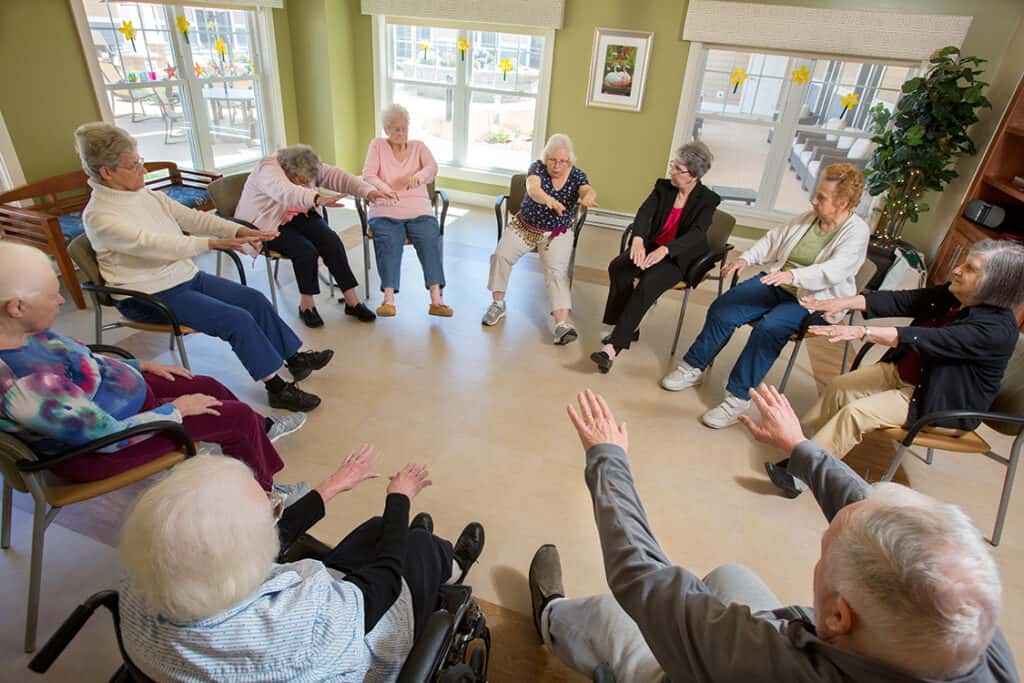Discover the benefits of Assisted Living as a senior care option.
Discover the benefits of Assisted Living as a senior care option.
Blog Article
Recognizing Just How Assisted Living Supports Patients With Dementia Treatment Needs
Aided living centers are increasingly recognized for their crucial role in resolving the intricate treatment needs of clients with dementia. By offering an organized yet supporting atmosphere, these facilities not just advertise safety and well-being however likewise cultivate a feeling of autonomy through individualized treatment plans.
Introduction of Dementia Care
Dementia care is progressively important as the prevalence of dementia-related problems rises amongst aging populations. The problem can differ considerably in its discussion, calling for customized treatment techniques to fulfill individual needs.
Effective mental deterioration care entails a multidisciplinary technique, incorporating clinical, psychological, and social assistance. Medical care specialists, caretakers, and relative need to team up to create a caring setting that promotes the wellness of individuals with dementia. Trick components of dementia treatment include customized care strategies, cognitive stimulation treatments, and behavioral interventions focused on enhancing lifestyle.
Moreover, it is crucial to identify the emotional and mental difficulties encountered by both patients and caretakers. Education and learning and training for caretakers play a critical function in fostering understanding and empathy, consequently boosting interactions with those influenced by dementia. As the demand for dementia care proceeds to rise, the emphasis needs to stay on delivering compassionate, person-centered care that appreciates the dignity and choices of individuals coping with this condition.
(Dementia Care Charlotte)
Function of Assisted Living Facilities
Aided living centers play an essential duty in giving treatment for people with dementia, supplying a helpful setting that balances self-reliance with the essential assistance. These centers are developed to deal with the unique requirements of homeowners, advertising a feeling of area while making sure security and wellness.
In an assisted living setup, trained personnel members supply 24/7 support, aiding with everyday activities such as bathing, clothing, and drug monitoring. This level of care is important for individuals with mental deterioration, that might have problem with these tasks as a result of cognitive decline. In addition, facilities frequently integrate memory-enhancing programs and social tasks tailored to promote cognitive functioning and motivate social interaction.
The physical atmosphere of nursing home is additionally maximized for safety and security, featuring safe and secure entryways, well-lit paths, and clear signage to aid residents navigate their surroundings. Moreover, these neighborhoods foster a sense of belonging, minimizing the feelings of seclusion that people with dementia might experience.
Personalized Care Plans
To make sure that each resident receives the most ideal treatment, individualized treatment plans are important in assisted living facilities for people with dementia. These plans are tailored to satisfy the one-of-a-kind requirements, preferences, and difficulties faced by Assisted Living Charlotte each homeowner, advertising their self-respect and high quality of life.
The advancement of an individualized care strategy usually begins with an extensive assessment performed by medical care specialists. Assisted Living. This evaluation assesses the person's cognitive abilities, physical health, emotional wellness, and social choices. Input from household members and the resident themselves is vital, as it offers beneficial insights into their background, routines, and personal passions
When the analysis is full, a multidisciplinary group works together to develop a care strategy that details particular objectives and treatments. This might consist of drug administration, daily living assistance, and behavioral approaches tailored to reduce anxiety or agitation.
Normal reviews and updates to the treatment strategy guarantee it remains appropriate as the person's problem progresses. Memory Care. By prioritizing individualized treatment, helped living facilities can improve the overall well-being of residents with dementia, promoting an environment that appreciates their uniqueness while resolving their treatment requires successfully
Engaging Tasks and Socializing
Engaging activities and socializing play a crucial role in boosting the high quality of life for residents with dementia in nursing home. These activities are developed to promote cognitive feature, advertise emotional well-being, and foster links among residents. Organized programs, such as art therapy, music sessions, and memory therapy, offer chances for people to share themselves artistically while also causing favorable memories.
Socialization is similarly essential, as it deals with feelings of seclusion and solitude that can come with dementia. Team activities, consisting of games, team outings, and communal eating, motivate communication and assistance homeowners construct supportive relationships with peers and caretakers. This feeling of area not just enhances their daily experiences yet likewise adds to a more secure emotional setting.
In addition, engaging tasks can be tailored to individual choices and cognitive levels, ensuring that each resident can take part meaningfully. By creating an environment that focuses on involvement and social communication, helped living centers can significantly boost residents' overall mental wellness, promoting a sense of objective and belonging. Ultimately, these campaigns are vital elements of detailed dementia treatment, substantially impacting residents' total well-being and happiness.
Advantages of Neighborhood Assistance

Additionally, area assistance advertises social interaction, which is important for cognitive and emotional wellness. Engaging with peers and getting involved in group activities can boost mood and motivate memory, adding to a better sense of belonging. This social involvement is essential, as loneliness and seclusion can aggravate cognitive decrease.

(Memory Care Facilities Charlotte)
Final Thought
To conclude, aided living facilities work as crucial settings for individuals with mental deterioration, using organized support that fosters both independence and security. The execution of individualized treatment strategies makes sure that each homeowner's unique demands are met, while engaging activities advertise social interaction and cognitive engagement. Additionally, the feeling of community within these facilities dramatically alleviates feelings of isolation, boosting overall emotional health. Hence, assisted living plays an important function in boosting the lifestyle for individuals with dementia.
Report this page